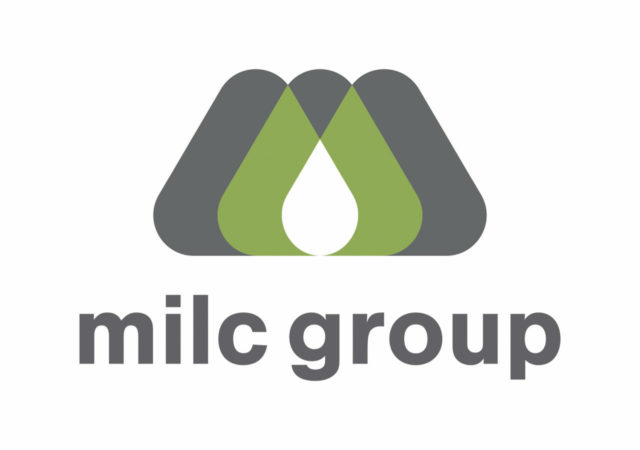A California federal court is reviewing a proposed $40 million settlement agreement in a class action lawsuit stemming from nonfat dry milk (NFDM) sales dating back to 2006.
The lawsuit (Carlin, et al. v. DairyAmerica Inc., et al., [case number 1:09-cv-00430-AWI-EPG]), was heard in the U.S. District Court for the Eastern District of California. For a review of the case, read: The long and winding road of the DairyAmerica lawsuit.
At the center of the lawsuit are NFDM prices reported to USDA’s National Ag Statistics Service (NASS) by DairyAmerica Inc., a federated marketing cooperative and the largest U.S. marketer of NFDM, from April 2006 to April 2007.
After discrepancies between NASS and USDA Ag Marketing Service (AMS) prices for NFDM were detected, a USDA audit revealed sales reported to NASS by DairyAmerica included prices from long-term contracts, a practice prohibited by law. Because the price reports were designed to determine the current value of milk, contracted volumes and prices included in the reports were limited to 30 days prior to a sales transaction.
Based on the audit, prices reported to NASS were in some cases as much as $1 per pound under comparable prices reported by AMS. Because the NASS prices were used to establish Federal Milk Marketing Order prices for milk in Class II, Class IV and, in some instances, Class I milk, the reporting of lower NFDM prices directly resulted in lower minimum milk prices paid to farmers. USDA calculated revised prices and, in June 2007, concluded the reporting errors reduced dairy farmer income by about $50 million.
Plaintiffs in the lawsuit charged the underreporting of prices was systematic and further alleged DairyAmerica and its members profited by depressing the price of NFDM. It also alleged that California Dairies Inc. (CDI), as a shareholder in DairyAmerica, was liable for the misreporting.
DairyAmerica and CDI acknowledged the erroneous reporting, but admitted no intentional wrongdoing in the case.
“DairyAmerica and CDI vigorously deny any claims of wrongdoing, and there has been no admission or court finding of liability for any claims,” said Brooke Bennett, CDI director of communications. “For DairyAmerica and CDI, settling these claims provides a way to bring closure to a long legal process, avoid the expense and uncertainty of further protracted litigation, and return their primary focus to their businesses and their members.”
The USDA had immunity in the lawsuit.
Multiple steps remain
According to lead plaintiff attorney George Farah, a partner in the law firm of Cohen Milstein, a ruling on the preliminary settlement agreement is likely in September. If approved, notices will be sent to every dairy farmer who marketed milk through a Federal Milk Marketing Order (FMMO) during the during the period of Jan. 1, 2002 through April 30, 2007. The notice will describe the settlement and offer affected dairy farmers the opportunity to accept the settlement and submit a claim form, or opt out of the settlement.
Any dairy farmer who marketed milk through a FMMO during the period is automatically a member of the “class.” Farah estimated up to 40,000 dairy farmers could be affected, including those who have since left dairying. According to Farah, the court required all 10 FMMOs to preserve data relevant to the case, including names and addresses of farmers who marketed milk during the period, as well as the volumes of milk marketed.
A final hearing on the settlement agreement is likely in December or January. If the agreement is not approved by the court, litigation resumes. If it is approved, the submission of claims could take one of two forms, Farah said.
One option could ask farmers to submit claim forms listing the pounds of milk they marketed during the period, putting the onus on the dairy farmer submitting the claim. A more likely scenario, Farah said, is that claim forms using FMMO data will be created for each producer, listing the individual volume of milk marketed. Producers could accept the milk volume listed, or dispute it and provide their own documentation to substantiate the milk volume they marketed. Unknown at this point is how co-op de-pooling will affect milk volumes.
Producer notification and filing of claims will be done via letter, not electronically.
If and when the final settlement agreement is approved, the court will decide what portion of the $40 million will go to lawyers to cover legal costs. The remaining portion of the settlement agreement will then be prorated based on the number of dairy farmers submitting claims and their milk volumes.
As the lead law firm for the plaintiffs in the case, Cohen Milstein has hired Rust Consulting as the claims administrator. The company specializes in class action lawsuit claim processing and will distribute and process claims forms, and maintain a phone hotline and website related to the lawsuit.
Even though the court case was held in California, the state’s dairy farmers won’t likely see any money from a settlement. That’s because California was not part of the FMMO system during the time period, and the state order’s minimum milk pricing formulas did not include NASS pricing data. ![]()

-
Dave Natzke
- Editor
- Progressive Dairyman
- Email Dave Natzke











